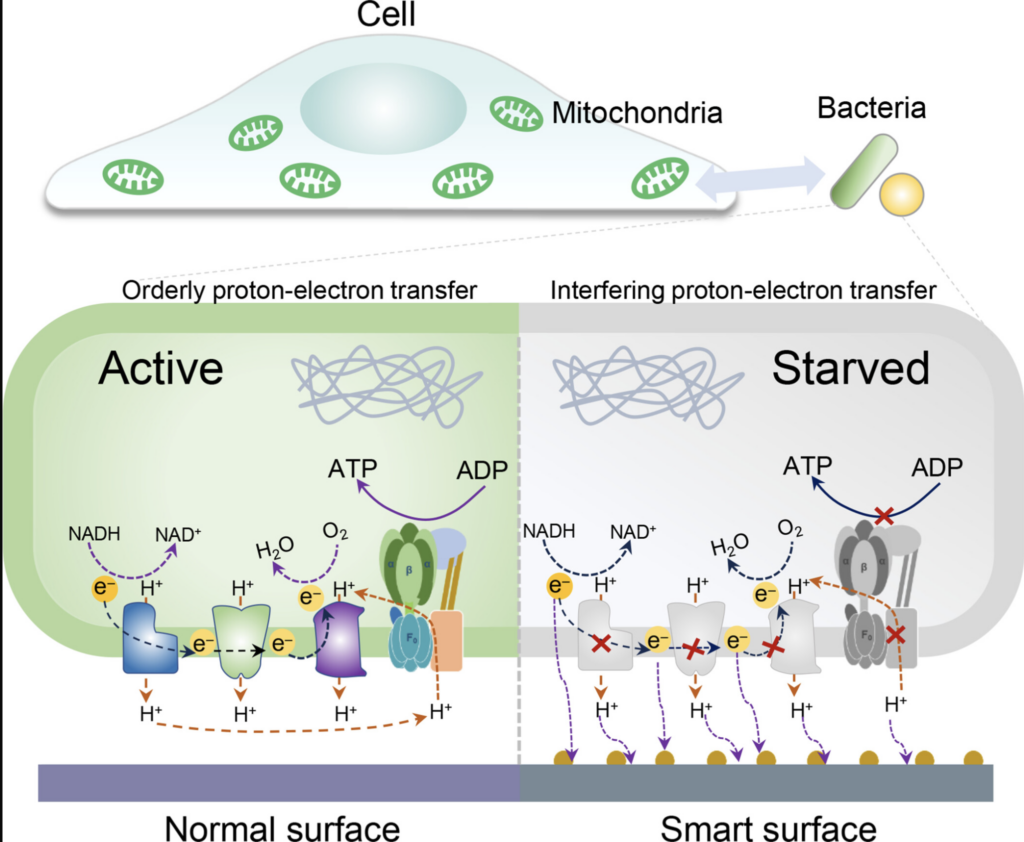http://english.cas.cn/newsroom/research_news/life/202503/t20250320_908335.shtml
https://www.science.org/doi/10.1126/sciadv.adt3159
A research team led by Prof. LIU Xuanyong from the CAS Shanghai Institute of Ceramics has introduced a pioneering antibacterial strategy that disrupts bacterial energy metabolism by interfering with proton and electron transfer in bacterial membranes.
Infections, particularly those associated with implants, pose a significant postoperative challenge, since bacteria within biofilms on implants can evade antibiotic treatments. The team’s approach focuses on disrupting bacterial energy metabolism through a Schottky heterojunction film composed of gold and alkaline magnesium-iron mixed metal oxides on titanium implants. When bacteria come into contact with the film, the heterojunction captures protons and electrons from the bacterial respiratory chain, leading to energy depletion and severe oxidative stress. This disruption inhibits ATP synthesis and other essential biosynthetic processes, ultimately causing bacterial death due to DNA and membrane damage.
Importantly, this heterojunction film does not affect mammalian cells, since their energy metabolism occurs within intracellular mitochondria, which are shielded from direct extracellular interference. The material’s selective antibacterial efficacy was confirmed in rat osteomyelitis and mouse percutaneous infection models, demonstrating both biosafety and the capacity to kill bacteria while supporting tissue integration. This breakthrough highlights a significant advancement in the development of antibacterial biomaterials that can effectively target bacteria while preserving healthy cells.

